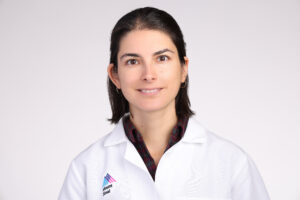
After completing my BSc and MSc degrees in Turkey, I obtained my PhD degree at the Max Planck Institute for Biochemistry in Germany, focusing on integrin receptor signaling that is crucial for cell-matrix interactions. I studied integrin signaling in the context of endoderm development which triggered my interest in pancreas development and beta cell biology. The main focus of my current research is to understand the genetic and epigenetic mechanisms that govern human pancreatic beta cell replication. Since diabetes results from the lack of sufficient numbers of insulin-producing beta cells, one measure to reverse diabetes is to restore normal beta cell mass and function. Therefore, I aim to develop new therapies for diabetes that will work through restoring beta cell mass.
In a recent study, I demonstrated that TGF beta and DRYK1A signaling synergize to induce unprecedented rates of human beta cell proliferation. Further, in a more recent study I showed that GLP1R agonists also synergize with DYRK1A signaling to induce robust levels of beta cell proliferation. In addition to these approaches, I recently started using single cell approaches to better understand the mechanisms that control beta cell replication. In this study, we analyzed the transcriptome of cadaveric human islets treated with beta cell regenerative drugs using single cell RNA-seq. Our results revealed that the lineage dynamics in the human islets is more sophisticated than initially anticipated when islets are subject to regenerative drugs. Importantly, we showed that cycling alpha cells are the main target of regenerative drug treatment in human islets and they have the potential to transdifferentiate into human beta cells.